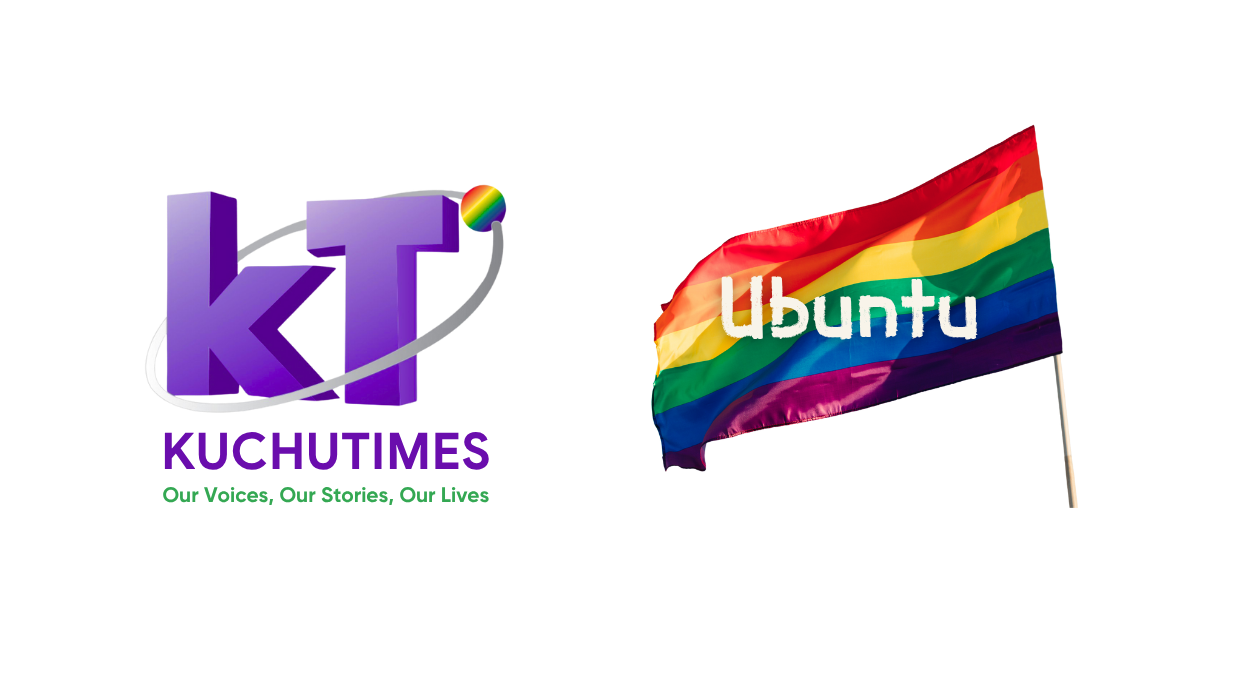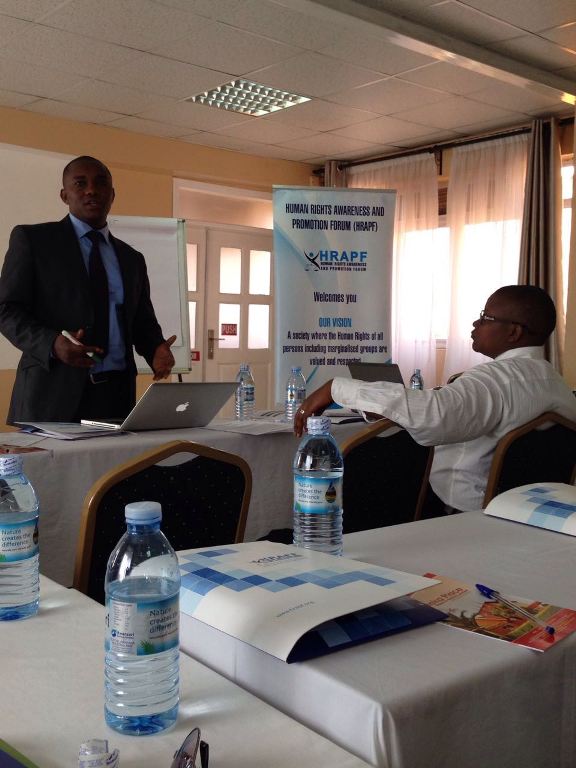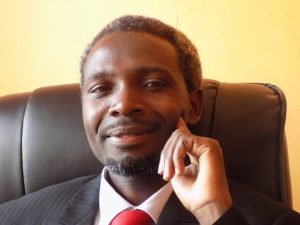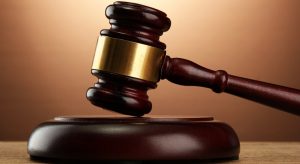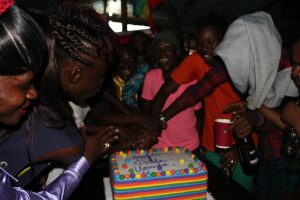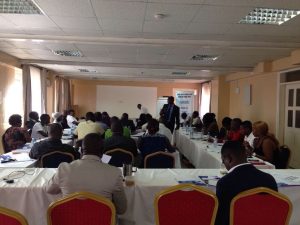
Following the break-in at Human Rights Awareness and Promotion Forum-HRAPF, the organization held one day training for leaders in the Lesbian, Gay, Bisexual, Transgender and Intersex (LGBTI) community. The training was meant to find possible ways to productively engage with some of the local stake holders, notably the police and the judiciary bodies on the rights of LGBTI persons.
This one-day event was held in Kampala and was well attended by community leaders from different regions of the country; it was also facilitated by representatives from the Uganda Police Force, the Judiciary, lawyers as well as administrators from Sexual Minorities Uganda (SMUG), the umbrella association for Uganda’s sexual and gender minority organizations.
For a long time now, Uganda’s LGBTI community has regarded the Uganda Police Force and the judiciary as opponents rather than potential allies. This arises from instances where the Uganda Police Force, in their process to enforce laws, has ended up arresting and charging several community members for engaging in same sex relations even when they are consensual.
Any effort or work aimed at protecting LGBTI persons have always been deemed illegal, also creating a lot of mistrust between members of the Ugandan LGBTI community and the Uganda Police Force as well as the judiciary who have been fast to table these cases in the courts of law.
From the training, it was clear that there is very little awareness and understanding of the issues affecting people from the gender and sexual minority community on the part of the Police and the judiciary. Under section 145 of the Penal Code Act, any one charged with carnal knowledge against the order of nature is punishable with life imprisonment; it is upon this background that LGBTI persons are continuously subjected to unfair legal treatment as their mere existence is considered a crime.
However, it should be remembered that the Uganda Police Force and Judiciary are obliged under the constitution to protect all citizens irrespective of gender identity or sexual orientation. There is therefore need for LGBTI people to engage these state powers to make an effort and listen to the minorities so as to arrive at a middle ground that benefits both parties. In return, the LGBTI community must know the mandate of the Police and judiciary for this relationship to work efficiently.
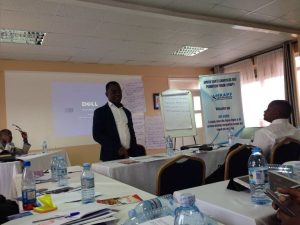
In contravention of Article 212 of the Uganda Constitution obliging the Police to protect life, property and preserve law and order, the Force has based on the Penal Code Act section 145 to arrest LGBTI persons arbitrarily, conduct unlawful HIV/AIDS testing and physical examinations on suspects, detain suspects beyond 48 hours and in most cases denying them to access their lawyers, shamming LGBTI suspects by parading them before the media and in some cases, has raided houses of suspects without any search warrants.
Adrian Jjuko, the Executive Director of HRAPF in his official opening remarks called upon members to utilize the opportunity to learn more about the roles of the Police Force and the judiciary. He further noted that community members should utilize all the available avenues to engage more stake holders and continue doing more work concerning awareness and sensitization.
Juuko also led participants through sessions about the need for advocacy and what factors need to be considered if the community is to have productive advocacy and what strategies to be adopted .
The Uganda Police Force was represented by Mr. Enoch Tumwesigye from Old Kampala Police station who elaborated about different roles played by the Police. He gave a brief history of the Uganda Police Force from the colonial times to the current era of ‘community policing’. Tumwesigye highlighted the challenges encountered by the Police in their line of duty and agreed that they are in an evolving process and are also trying to learn more in relation to LGBTI issues. He however noted that the concern for cultures and norms still cannot be ignored.
Douglas Singiza from the Judicial Service Institute encouraged members to endeavor to learn all things if not most in relation to their entitlements as citizens of this country as protected by the constitution.
